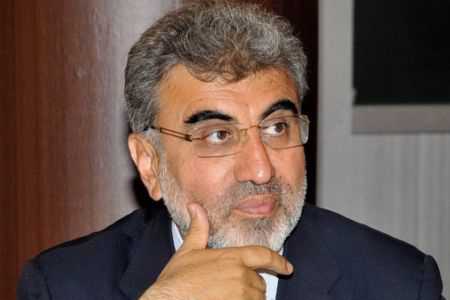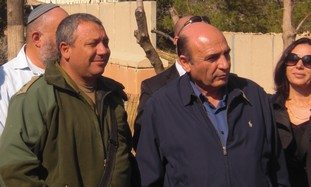TEHRAN (FNA)- With the Arab uprisings gradually reconfiguring the regional political landscape, Israel is finding itself increasingly isolated, an analyst said.
 For at least a decade, Israel has identified Iran as its main strategic nemesis, but the Arab spring has rekindled simmering tensions between Israel on one hand, and Arab states as well as Turkey on the other. The ongoing unrests within Syria could also jeopardize the implicit modus vivendi between Syrian President Bashar al-Assad and Israel, paving the way for a potential conflict in the future. The whole Arab landscape has actually shifted: the Hezbollah faction is playing a central role in Lebanese politics; the Egyptian public is demanding a reassessment of the 1979 Egypt-Israel peace treaty; and the Jordanian government is facing growing domestic political pressure. Israel is grappling with a totally new emerging regional order, Richard Javad Heydarian said in an article in Eurasia.
For at least a decade, Israel has identified Iran as its main strategic nemesis, but the Arab spring has rekindled simmering tensions between Israel on one hand, and Arab states as well as Turkey on the other. The ongoing unrests within Syria could also jeopardize the implicit modus vivendi between Syrian President Bashar al-Assad and Israel, paving the way for a potential conflict in the future. The whole Arab landscape has actually shifted: the Hezbollah faction is playing a central role in Lebanese politics; the Egyptian public is demanding a reassessment of the 1979 Egypt-Israel peace treaty; and the Jordanian government is facing growing domestic political pressure. Israel is grappling with a totally new emerging regional order, Richard Javad Heydarian said in an article in Eurasia.
Meanwhile, Iran has continued advancing its ballistic missile capabilities. Palestine, bolstered by growing international support, is pushing for statehood, circumventing the Israeli-dictated “peace process.” Domestically, large demonstrations have shaken major Israeli cities, as people across the political and economic spectrum demand crucial economic and social reforms. There are also growing signs of splits within the Israeli bureaucracy over plans to attack Iran.
Therefore, the Zionist regime seems to the biggest loser of the Arab uprisings. This is the perfect opportunity for the Obama administration to redeem itself by pressuring Israel to make necessary compromises, re-evaluate its inhumane policies toward Gaza, and make necessary reforms before it’s too late. The clock is ticking fast, Heydarian said.
For decades, Israel, under the so-called “periphery doctrine,” relied on its alliance with Turkey and Iran to ameliorate its isolation within the Arab Middle East. However, the 1979 revolution transformed Iran into a revisionist power that was committed to the “Palestinian cause” and the empowerment of oppressed communities across the region. As a result, Iran emerged as Israel’s key strategic threat.
The subsequent revival of Iran’s nuclear program rattled Israel, prompting hawkish figures such as Benjamin Netanyahu to characterize Tehran as an existential threat. Facing a determined, influential, and powerful country such as Iran, Israel focused its bureaucratic-military energy on Iran’s nuclear program. This has become the centerpiece of Israeli national security doctrine.
Meanwhile, Tehran has been enhancing its military capabilities, reforming its domestic economy, enriching uranium, and closing its technological gap with the West. Undoubtedly, the Turkish-Israeli estrangement and the continued rise of Iran have placed Israel in a very tenuous strategic position.
The Arab uprisings have been predominantly about social justice, economic reforms, and political opening. However, they are also a rejection of the Arab autocrats’ decades of servility toward Israel and the West. The Arab Spring is fundamentally about regaining “Arab dignity,” both on the individual and national levels. Therefore, we should not be surprised to see that popular demands are also directed at Arab states’ policies toward Israel and Palestine, the article added.
Given how the two major non-Arab powers, Iran and Turkey, have developed a fierce position against Israel, it is natural to expect emerging post-autocratic as well as existing Arab states to step up their efforts against Israeli.
via Fars News Agency :: Arab Spring Pushing Israel into Further Isolation.




